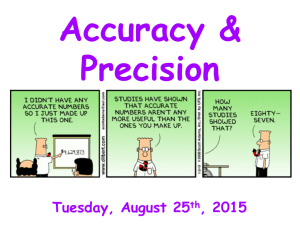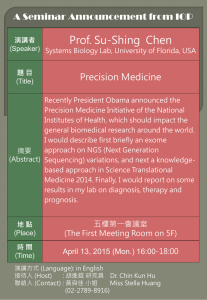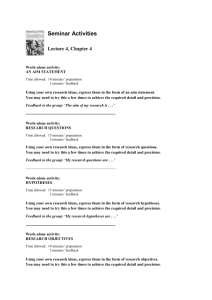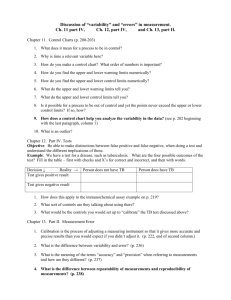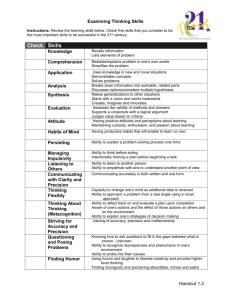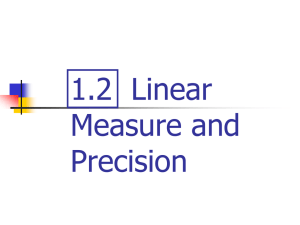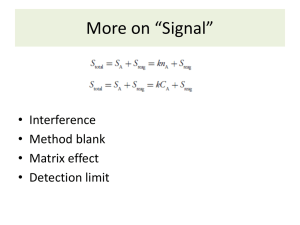W
advertisement
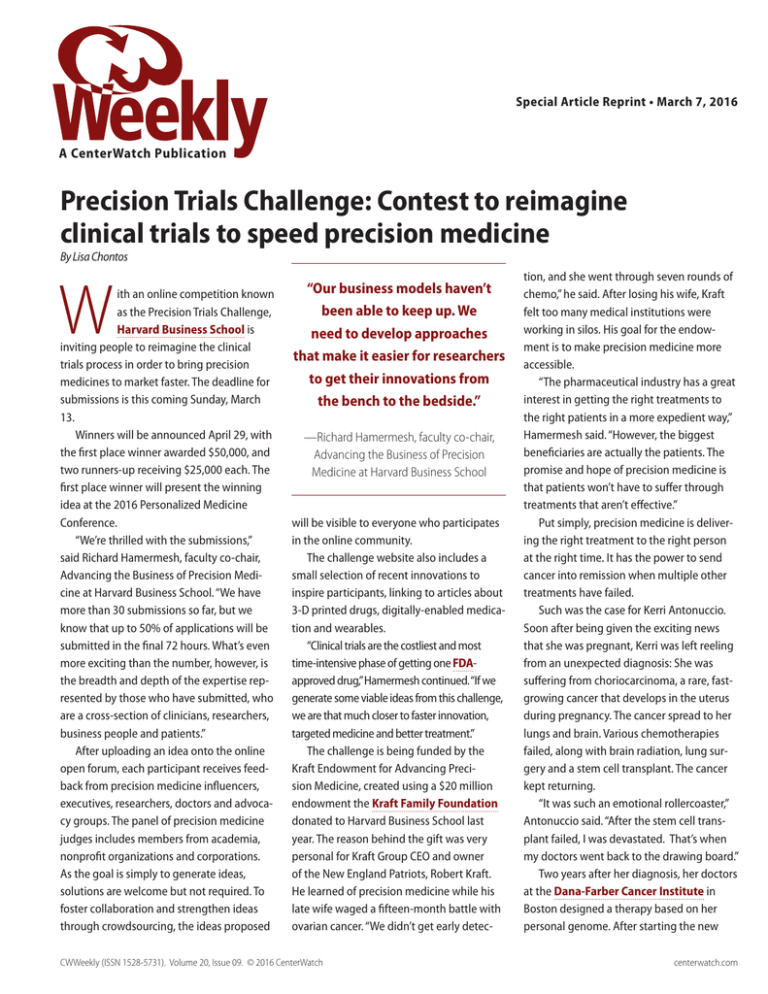
Special Article Reprint • March 7, 2016 A CenterWatch Publication Precision Trials Challenge: Contest to reimagine clinical trials to speed precision medicine By Lisa Chontos W ith an online competition known as the Precision Trials Challenge, Harvard Business School is inviting people to reimagine the clinical trials process in order to bring precision medicines to market faster. The deadline for submissions is this coming Sunday, March 13. Winners will be announced April 29, with the first place winner awarded $50,000, and two runners-up receiving $25,000 each. The first place winner will present the winning idea at the 2016 Personalized Medicine Conference. “We’re thrilled with the submissions,” said Richard Hamermesh, faculty co-chair, Advancing the Business of Precision Medicine at Harvard Business School. “We have more than 30 submissions so far, but we know that up to 50% of applications will be submitted in the final 72 hours. What’s even more exciting than the number, however, is the breadth and depth of the expertise represented by those who have submitted, who are a cross-section of clinicians, researchers, business people and patients.” After uploading an idea onto the online open forum, each participant receives feedback from precision medicine influencers, executives, researchers, doctors and advocacy groups. The panel of precision medicine judges includes members from academia, nonprofit organizations and corporations. As the goal is simply to generate ideas, solutions are welcome but not required. To foster collaboration and strengthen ideas through crowdsourcing, the ideas proposed “Our business models haven’t been able to keep up. We need to develop approaches that make it easier for researchers to get their innovations from the bench to the bedside.” —Richard Hamermesh, faculty co-chair, Advancing the Business of Precision Medicine at Harvard Business School will be visible to everyone who participates in the online community. The challenge website also includes a small selection of recent innovations to inspire participants, linking to articles about 3-D printed drugs, digitally-enabled medication and wearables. “Clinical trials are the costliest and most time-intensive phase of getting one FDAapproved drug,” Hamermesh continued. “If we generate some viable ideas from this challenge, we are that much closer to faster innovation, targeted medicine and better treatment.” The challenge is being funded by the Kraft Endowment for Advancing Precision Medicine, created using a $20 million endowment the Kraft Family Foundation donated to Harvard Business School last year. The reason behind the gift was very personal for Kraft Group CEO and owner of the New England Patriots, Robert Kraft. He learned of precision medicine while his late wife waged a fifteen-month battle with ovarian cancer. “We didn’t get early detec- CWWeekly (ISSN 1528-5731). Volume 20, Issue 09. © 2016 CenterWatch tion, and she went through seven rounds of chemo,” he said. After losing his wife, Kraft felt too many medical institutions were working in silos. His goal for the endowment is to make precision medicine more accessible. “The pharmaceutical industry has a great interest in getting the right treatments to the right patients in a more expedient way,” Hamermesh said. “However, the biggest beneficiaries are actually the patients. The promise and hope of precision medicine is that patients won’t have to suffer through treatments that aren’t effective.” Put simply, precision medicine is delivering the right treatment to the right person at the right time. It has the power to send cancer into remission when multiple other treatments have failed. Such was the case for Kerri Antonuccio. Soon after being given the exciting news that she was pregnant, Kerri was left reeling from an unexpected diagnosis: She was suffering from choriocarcinoma, a rare, fastgrowing cancer that develops in the uterus during pregnancy. The cancer spread to her lungs and brain. Various chemotherapies failed, along with brain radiation, lung surgery and a stem cell transplant. The cancer kept returning. “It was such an emotional rollercoaster,” Antonuccio said. “After the stem cell transplant failed, I was devastated. That’s when my doctors went back to the drawing board.” Two years after her diagnosis, her doctors at the Dana-Farber Cancer Institute in Boston designed a therapy based on her personal genome. After starting the new centerwatch.com CWWeekly March 7, 2016 therapy last February, she was often so sick, in and out of the hospital and emergency room, that she thought she couldn’t continue with it. In October, her scans were looking better, and her doctors decided she should stop and give her body a break. Now, her bloodwork is normal and her cancer is in remission. As intended, one drug killed the blood vessels and the cancer, and the other drug killed the protein. “I go in every two weeks for bloodwork, and it’s amazing every time,” Antonuccio 2 of 2 said. “I wake up feeling like every day is just an absolute gift. My doctors went above and beyond, and I give them the utmost respect.” The Kraft Endowment for Advancing Precision Medicine is set to unveil additional plans in the next few months. “There have been so many fantastic scientific breakthroughs in the past few years, but our business models haven’t been able to keep up,” said Hamermesh. “We need to develop approaches that make it easier for researchers to get their innovations from the bench to the bedside.” CWWeekly (ISSN 1528-5731). Volume 20, Issue 09. © 2016 CenterWatch Like Hamermesh and everyone involved in the Precision Trials Challenge, Antonuccio’s hope for precision medicine is that it can be implemented earlier in a patient’s treatment. She recalls, “I wish genome testing could be done at the beginning so other patients don’t have to go through that.” After all she’s been through, Antonuccio underscores this simple message: “I don’t want people to lose hope, doctors included. You just can’t. If I had lost hope, I wouldn’t be here. Now that I’m feeling better, I’m on a crusade to help others.” centerwatch.com
